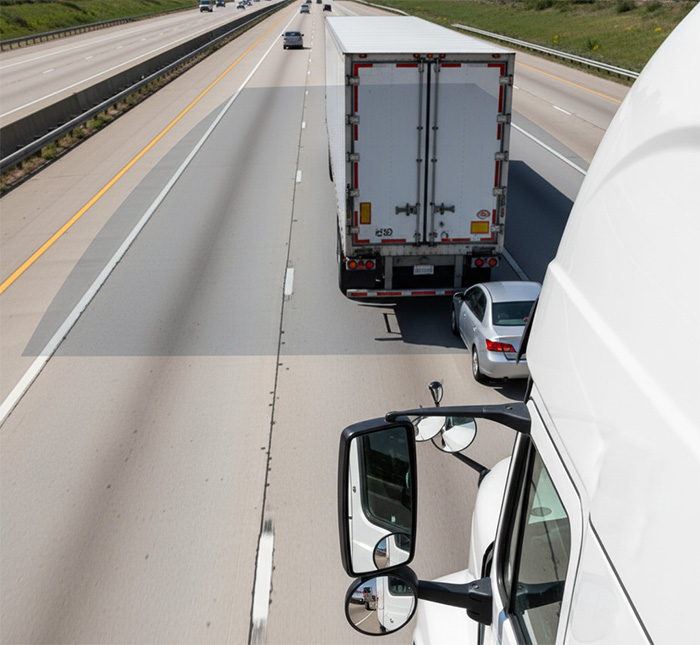
Truck Drivers: Make the Most of your Tax Deductions
Whether you’re an over-the-road truck driver, or an owner-operator, it’s difficult to know what you can and can’t write off on your tax return. The IRS is constantly changing the fine print, which can make it even more challenging.
Let’s assume you have been diligently keeping your receipts and invoices somewhere. Next step is figuring out what to do with all of it. Hopefully you’ve even gone the extra step to ensure you stored everything in a safe place, and kept track of all your expenses on a spreadsheet or notebook.
First, let’s take a look at the top write-offs for truck drivers that are often missed, starting with the common, every day stuff.
If you are a self-employed driver, your taxes will look different than those who have W-2 earnings. Out-of-pocket purchases are routine and can add up. Tracking all of your business-related purchases (and the use of your home in some cases) lowers your taxable income, which allows you to keep more of your money.
Your phone and internet are big ones. The IRS lets you deduct 50% of the cost for your mobile phone and internet data plans, as well as 100% of the cost of the device itself.
Truck drivers can also deduct 80% of their meals, travel expenses, and incidentals while spending the night away from home. This includes all tolls, parking feels and fuel as well.
Any necessities while on the road are tax-deductible. This can be a satellite radio subscription, laundry, logbooks, ELD’s, GPS, chargers, adapters, mini fridge, etc. Even things like sunglasses and gloves can be written off, and it all adds up.
Whether you own or lease, you can deduct the cost of maintaining, cleaning, and repairing your truck. Note: if you do the work yourself, you can only deduct the cost of the parts and not labor.
Need to replace your tires? What about new straps, load locks, or tarps? All of these can be written off as well.
If you have a dedicated home office, it is also deductible. That includes homeowners’ insurance, rent, repairs and maintenance, utilities, and security systems.
Health insurance and retirement plans are another big expense you can deduct, but only if you are not a W-2 worker that gets coverage from another employer. The same goes for any contributions you make to a retirement plan.
Likewise, you can deduct your health, dental, and long-term care insurance premiums, as well as the cost of premiums that cover your spouse or dependent.
If you are a 1099 worker, you are required to pay both parts of FICA (Federal Insurance Contributions Act) taxes. However, you can deduct half of those payments as self-employment taxes. If you file as a sole proprietor, partnership or S-Corporation, you may be eligible for a deduction of 20% of your profit as well.
Whether you decide to file your own taxes, or let an accountant do them, it’s important to know what kinds of things to be aware of. When in doubt, save the receipt. Keep them all in one place, and you won’t be scrambling to find everything when tax time comes.
For more information, and up to date changes, visit the official IRS page for Truck Drivers at https://www.irs.gov/businesses/small-businesses-self-employed/trucking-tax-center
What specific documentation does the IRS require to validate deductions for truck drivers?
The IRS requires proper documentation to substantiate any deductions claimed. Truck drivers should keep the following records:
- Receipts and Invoices: For all expenses, including fuel, meals, repairs, and supplies. Digital receipts are acceptable, but they should be stored securely and backed up.
- Mileage Logs: If claiming vehicle expenses based on mileage, a detailed log should include dates, destinations, purpose of the trip, and miles driven.
- Bank Statements and Credit Card Statements: These can support claimed expenses but should be supplemented with receipts.
- Trip Sheets or Logs: Documentation showing time away from home to validate per diem claims.
- Home Office Records: If claiming a home office deduction, keep records of expenses such as rent, utilities, and insurance.
- Tax Forms: Keep copies of previously filed tax returns and any relevant tax documents such as 1099 forms for self-employed truckers.
Are there any state-specific tax deductions for truck drivers that differ from federal deductions?
Yes, tax deductions can vary by state. Some states offer additional deductions or credits for truck drivers, such as:
- State-Specific Per Diem Rates: Certain states may have different rules on per diem deductions compared to federal allowances.
- Sales Tax Deductions: In states with no income tax (e.g., Texas, Florida), truck drivers may be able to deduct sales tax paid on major purchases such as equipment and truck repairs.
- Fuel Tax Credits: Some states offer fuel tax refunds or credits if the trucker can show the fuel was used for interstate business.
- Business Expense Deductions: States like California and New York have specific regulations regarding business-related deductions, which may be more stringent or offer different allowances.
Truckers should check their state’s Department of Revenue website for specific tax benefits applicable to them.
How does leasing vs. owning a truck impact tax deductions beyond repairs and maintenance?
The tax treatment of leasing vs. owning a truck can impact deductions in several ways:
- Leasing a Truck:
- Lease payments are fully deductible as a business expense.
- No depreciation deduction is available for leased trucks.
- Potential limits on claiming deductions if the lease agreement has an option to buy at the end (classified as a “capital lease”).
- Owning a Truck:
- Owners can claim depreciation on the truck, spreading the cost over several years (typically using the Modified Accelerated Cost Recovery System – MACRS).
- Interest paid on a truck loan is deductible.
- Major upgrades or improvements to the truck can also be depreciated rather than fully deducted in the year incurred.
Generally, leasing provides simpler deduction opportunities in the short term, while owning can offer larger tax benefits over the long term through depreciation and asset appreciation.
This may also interest you:
- Survival Guide for the First Year as a New Truck Driver
- Truck Driving Jobs: What Are the Career Benefits for a Truck Driver?
- IS TRUCK DRIVING A GOOD CAREER FOR ME?
Disclaimer: The information in this article is based on the data available as of its writing and is meant to inform and guide prospective CDL trainees. For the most current information and specifics about CDL training programs, please contact SAGE Truck Driving Schools directly.
Please fill out the information below and our team will reach out to chat about your options.


